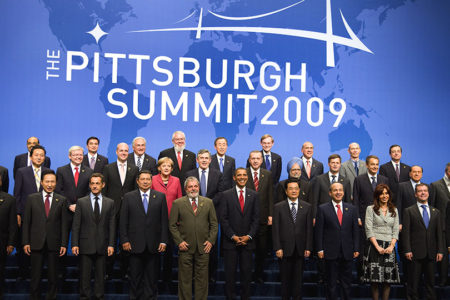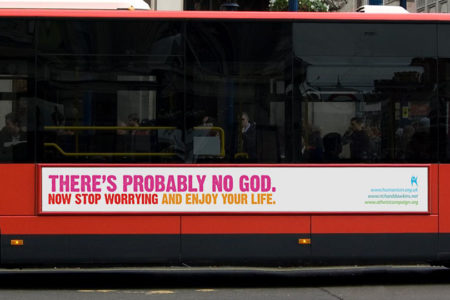Christ’s New Covenant Ministry Hebrews 8:1–13
Hebrews 8 begins with the author summing up the first seven chapters about Christ’s priesthood: “Now this is the main point of the things we are saying: We have such a High Priest, who is seated at the right hand of the throne of the Majesty in the heavens” (v. 1). The chapter then shows that the Aaronic priesthood in the Levitical system was superseded by Christ’s heavenly priesthood—not through the Mosaic Covenant but through a New Covenant. The author hoped that clarifying these facts would deter Jewish believers from returning to the old Mosaic system that was terminated with Christ’s crucifixion.
New Covenant Priest
He presented three reasons why Christ’s priesthood is more excellent than the Levitical one.
Majesty. After His resurrection, Christ sat down at the right hand of God the Father. He did not sit on David’s throne in heaven, as some teach, because Christ will sit on that throne (in Jerusalem) after His Second Coming (Lk. 1:32–33). The word seated (Heb. 8:1) shows that, unlike Levitical priests, Christ completed His work of redemption and has been elevated in heaven to a position of acceptance, authority, power, and honor. Thus Christ is more excellent because of His position of majesty.
Ministry. He is also “a Minister of the sanctuary and of the true tabernacle which the Lord erected, and not man” (v. 2). The words true tabernacle point out that the heavenly sanctuary where Christ now functions was erected by God and differs in nature from the Old Testament Tabernacle and Temple erected by people on Earth.
The Levitical high priest was “appointed to offer both gifts and sacrifices” (v. 3). As an appointed High Priest, Christ must offer gifts and sacrifices to God the Father on behalf of those He represents. The Law disqualified Christ from ministering in the Aaronic priesthood on Earth because He was not a Levite (v. 4). Thus He began His high priestly ministry in the heavenly sanctuary after His resurrection.
From their inception, the earthly Tabernacle and its ministry were merely the “copy and shadow of the heavenly things” (v. 5). Since they were only temporary, patterned after heavenly realities, they needed to give way to Christ’s superior ministry in heaven.
Mediation. Third, Christ is the “Mediator of a better covenant, which was established on better promises” (v. 6). A mediator is someone who brings two individuals together to consummate an agreement. Moses was the mediator of the covenant given at Mount Sinai (Gal. 3:19); Christ is the Mediator of the New Covenant (Heb. 9:15). The Mosaic Covenant’s promises were conditional, earthly, temporary, and applied only to those under the Law. The New Covenant is unconditional, spiritual, and eternal. Christ’s death and shed blood on the cross paid the price necessary to implement the New Covenant (cf. Mt. 26:28), providing forgiveness of sin and salvation to all who believe in Him.
New Covenant Priority
The author then contrasted the first covenant (Mosaic Covenant) with the second (New Covenant): “For if that first covenant had been faultless, then no place would have been sought for a second” (Heb. 8:7).
The first covenant was made with the nation of Israel at Mount Sinai (Ex. 19:5; 34:27–28). It did not alter, annul, or abrogate the provisions of the Abrahamic Covenant because the Mosaic Covenant was given 430 years after the Abrahamic (Gal. 3:17–19). Moses carefully distinguished between these two (Dt. 5:2–3).
The Mosaic Covenant encompassed three areas of Israel’s life: the moral laws, spelled out in the Ten Commandments (Ex. 20:1–17); social laws, given to govern relationships within the nation (21:1—24:11); and religious laws, provided to direct the Israelites in their worship of God (Ex. 24:12—31:18).
But the Mosaic promises of blessing were conditional. Israel had to obey the commandments for God to fulfill His promises: “If you will indeed obey My voice and keep My covenant, then you shall be a special treasure to Me above all people” (19:5).
Israel failed to keep its part of the bargain. The fault was not with the Law, for its commandments were holy, just, and good (Rom. 7:12). Nor was the fault with God, for He directed and led the Israelites out of Egypt with signs and wonders and cared for them throughout their wilderness journey (Dt. 1:30–31; 32:1–14). The fault was with mankind’s sinful nature, which caused Israel to rebel against the Mosaic Covenant’s stipulations (Rom. 7:8–9). The covenant also had limited power to provide spiritual life and righteousness for sinful humanity (Heb. 8:7; cf. 7:11; Gal. 3:19–25).
The second covenant, the New Covenant, was also made with Israel. Quoting Jeremiah 31:31, Heb. 8:8 reads, “Behold, the days are coming, says the Lᴏʀᴅ, when I will make a new covenant with the house of Israel and with the house of Judah.”
The Lord said the New Covenant would be different from the Mosaic Covenant, “not according to the covenant that I made with their fathers in the day when I took them…out of…Egypt; because they did not continue in My covenant” (v. 9). In other words, when He made the Mosaic Covenant with Israel, the people promised to keep its precepts (cf. Ex. 19:5–8; 24:3–8); but they soon broke this first covenant, committing spiritual infidelity that resulted in God’s severe judgment of the nation (Ex. 32; Ezek. 16; Hos. 1:9).
The New Covenant is superior to the Mosaic Covenant because knowledge of God is written on the heart: “I will put My laws in their mind and write them on their hearts” (Heb. 8:10; cf. Jer. 31:33). The Mosaic Covenant was an external code, engraved in stone (Ex. 32:15–16; 2 Cor. 3:7), that promised blessing in exchange for obedience. But the people failed to obey it.
In contrast, the New Covenant is written “on tablets of flesh, that is, of the heart” through the Holy Spirit’s ministry (2 Cor. 3:3). All unbelieving Jewish people will experience regeneration at Christ’s Second Coming when God pours out His Spirit on the nation. This will result in Israel’s repentance and reconciliation with the Messiah (Zech. 12:10; Rom. 11:26). God will give the nation a new heart and spirit (Ezek. 36:26).
With a new heart, no one in Israel will need to teach his neighbor about the Lord because all will know Him, “from the least of them to the greatest of them” (Heb. 8:11; cf. Jer. 31:34). In the Millennial Kingdom, Jewish believers will not require a priest to teach them, for the Lord will teach them through the indwelling Holy Spirit (Isa. 54:13; Jn. 6:45). They will be empowered to walk in His ways and keep His statutes and ordinances (Ezek. 36:27).
The New Covenant is also superior in that it provides forgiveness of sin to those who have been redeemed: “I will be merciful to their unrighteousness, and their sins and their lawless deeds I will remember no more” (Heb. 8:12; cf. Jer. 31:34). The first covenant brought sin to mind with each animal sacrifice (Heb. 10:3). These sacrifices never removed sin; they only covered it (v. 4).
Under the New Covenant, Israel’s sins will be remembered “no more” because of Christ’s mediatory ministry on Israel’s behalf. He was the sacrificial Lamb (Jn. 1:29) who, once for all, took away sin through His blood of the New Covenant (Heb. 10:15–18). The New Covenant gives strong assurance of Israel’s forgiveness by use of the term no more, meaning “no, never, not under any condition” will God remember Israel’s sins (cf. Ezek. 37:23).
Also, unlike the Mosaic Covenant, the New Covenant is eternal (v. 26). This “made the first [covenant] obsolete…growing old…ready to vanish away” (Heb. 8:13). In other words, the Mosaic Covenant became antiquated, obsolete, useless, inoperative, and was ready to be dissolved with the instituting of the New Covenant. Therefore, the unconditional, eternal New Covenant is superior to the transitory, temporary Mosaic Covenant.
New Covenant Participants
A word needs to be said concerning the parties with whom the New Covenant was made. The text clearly states it was made “with the house of Israel and with the house of Judah” (v. 8). How then does the church relate to the New Covenant?
Some believe God made two New Covenants, one with Israel and another with the church; but nowhere in Scripture are two New Covenants mentioned.
Others believe the church has replaced Israel as the one with whom the New Covenant is made. This view is commonly known as Replacement Theology. It maintains that God replaced Israel with the church because Israel rejected Jesus as its Messiah. Replacement theologians believe the promises originally made with Israel in the New Covenant are now being spiritually fulfilled in the church, which they commonly call “spiritual Israel.”
Nowhere is this position taught in Scripture. True, Israel did not receive Jesus at His First Coming, but the numerous promises God made to Israel in the New Covenant were simply postponed, not annulled. These promises will be fulfilled literally and physically to the nation of Israel in the Millennium after Christ’s Second Coming.
Still others believe the New Covenant was made with Israel, but it applies to the church as well. Thus there is one covenant but two applications: one for the church now and another for Israel in the Millennial Kingdom. But the church cannot be fulfilling any of the provisions of Israel’s New Covenant today because the covenant was made exclusively with Israel and Judah (v. 8), not with the church. Scripture has never called the church Israel or spiritual Israel; and the covenant will be fulfilled in the redeemed nation of Israel after Christ’s Second Coming––which precludes it being fulfilled in the church.
Finally, some believe God made only one New Covenant that will be fulfilled eschatologically with Israel, ratified by Christ’s blood, but participated in soteriologically by the church today, thus opening the way for Him to bless Jewish and Gentile believers alike spiritually during the Church Age. However, the promised provisions of national, spiritual, and material blessing made to Israel will only be fulfilled to a redeemed Israel during the Millennium. When considering all these possible views, this last one is truest to the teaching of Scripture.
We praise God that a redeemed remnant of Israel will experience the complete fulfillment of the New Covenant blessings during the Millennium.







